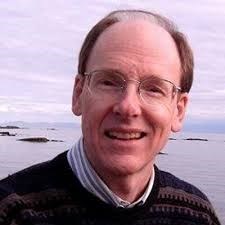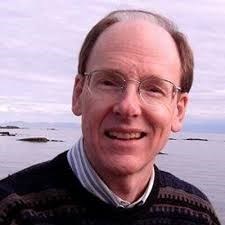For many people, the word “spiritual” can touch something uncomfortable inside. If that’s your experience, let me first offer an idea that may help put you more at ease.
For me, spiritual refers to the non-physical part of every human being. All those essential aspects of ourselves that cannot be touched: our thoughts, feelings and emotions; our beliefs, attitudes and perceptions. It is the awe we feel at a beautiful sunset; the love that wells up when we look at a new-born baby; our spontaneous joy when seeing someone do something good for somebody else.
It is also more than that. It’s that aspect of being human – call it energy or consciousness – which connects us, at a deeper level, with others and the rest of life. Some of us experience this in nature, or through prayer and meditation; when giving to others, or simply looking up at the cosmos (or a lunar eclipse) on a starry night. It’s a knowing and experience that we are part of something more.
So here’s the question: How can we use this ‘spiritual’ awareness, of who and what we are, to create more ‘healing change’ in our lives, our work and our world?
In my last two articles (part one, part two), I described how the two sides of human nature – our light and dark sides (or true and false selves) – guide our thinking and behaviour. Here I want to explore how these mindsets also affect the ‘change’ we try to make in our lives, and the unexpected outcomes we get as a result.
How Do We Create Change?
As a “child of the sixties,” I’ve known a lot of people who have worked for environmental, social and political change. Each one did so with high ideals and positive motivation to make the world a better place. They did their best to raise awareness of the problems, and solutions, and encourage action across a wide range of issues – from garbage to energy conservation, poverty, AIDS, alternative health and world peace. So what happened?
Sometimes, people heard the message and decided to change. As a result, the progress we’ve made across society on all these issues has been significant. However, when politicians, civil servants, business leaders or the public didn’t act the way we wanted, we often felt frustrated and tried ‘pushing for change’ even harder. We began telling people how they should act, and often used fear or guilt to motivate them. If that wasn’t enough, we applied still more pressure. We pushed governments through write-in campaigns, protests, demonstrations and the media. We pressured companies through economic measures such as boycotts or public shaming. The more people didn’t do what we thought was right, the more aggressive we tended to become.
Why? Because that’s “how we create change.” When what you’re doing doesn’t work, push harder. And if the positive approach doesn’t work, go negative. You may not want to, and people might not like it, but that’s what you have to do. Everyone knows that. And as a result, we end up using pressure, anger, force or manipulation to get others to change.
We’ve all done it: in relationships, as parents, or with others in business. In fact, people have done this for thousands of years, in politics, social change, religion and the military. It’s a standard part of being human. When people don’t do what we want, we ‘push’ them to act differently.
The question is, how well does this approach actually work?
The Past 50 Years
Looking back at the last 50 years of environmental change, the results are definitely mixed. Significant progress has been made in many different areas: from the creation of environment departments to government legislation on environmental issues; from widespread reductions in air and water pollution, acid rain and whaling to advancements in recycling, reforestation and protection of the ozone layer, to name but a few.
Yet if you talk with someone knowledgeable about the environment, these changes don’t seem to be nearly enough. Our problems have continued growing faster than the solutions we’ve created. So, too, have our frustration, desperation and concern for the future, as the changes we believe are still needed have not yet happened.
What’s been less obvious, but also growing, is the social backlash that’s occurred. Many people are increasingly resistant to change, whether it’s to carbon taxes, more money for public transit or reducing climate change; increasing affordable housing, changing our voting system, or settling First Nations land claims. The ‘Don’t tell me what to do’ mindset in society is growing as well.
Many people today are feeling scared about their security, threatened by the chaos in our world, and tired of being pushed to change. And they are now pushing back. Their anger and frustration can be seen in many places, from “Ford Nation” (a reference to the election of Rob Ford as mayor of Toronto in 2010) to the spread of the Tea Party and election of Donald Trump in the U.S. Around the world, there’s been a widening of political and societal divisions – with increased polarization of views, growing rancour, and less willingness to hear, consider and work with opponents.
Reflecting on Our Approach... and Results
Several decades ago, I felt these kinds of conflicts growing in my own life. I also began noticing that our ‘work for change’ often wasn’t working, and began to ask: Why haven’t we been more effective in creating the progress we hoped for? It’s only more recently that I began to grasp what some of the deeper reasons may be behind this. And in my next article, I’ll do my best to articulate why...
Coming on Saturday: Why aren’t we more effective in creating change?
 Eric Hellman is a communications coach and change consultant. Co-founder of the world’s first Blue Box recycling program, and consulting author of the bestseller, Leadership from Within, his newest work is called Conscious Change. For more information, see http://intro.consciouschange.info or contact him at erichellman@rogers.com.
Eric Hellman is a communications coach and change consultant. Co-founder of the world’s first Blue Box recycling program, and consulting author of the bestseller, Leadership from Within, his newest work is called Conscious Change. For more information, see http://intro.consciouschange.info or contact him at erichellman@rogers.com.
You can read more articles on our interfaith blog, The Spiritual View, HERE


